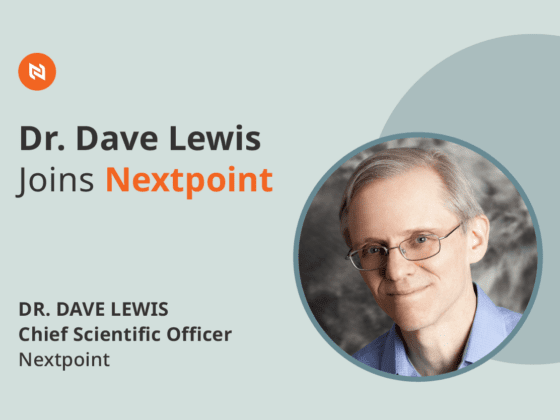An important word has been missing from much of the talk about Alex Jones: Ediscovery. But ediscovery is where it all went wrong in the fiasco of his case.
In a bizarre twist of events that are even “too dumb” for a Law & Order episode (according to an original show-writer), the world recently ogled the video of a slack-jawed, wide-eyed Alex Jones realizing that his entire text message history was disclosed to opposing counsel. The tantalizing event occurred during the cross-examination of the Infowars owner in a defamation suit brought by victims of the Sandy Hook massacre that completely conflicted with Mr. Jones’ repeated insistence that the text messages never existed.
With apologies to the Counting Crows, I’ve been wrestling to make sense of the apparent ediscovery blunders involved in the dump of Mr. Jones’ emails and text messages. Two months have passed since the initial fiasco, which has given me some time for reflection. And as his name re-entered the news last week with a separate defamation trial, I separated my questions regarding the earlier text message turmoil into two main areas: first, the bewildering procedural uncertainty, and second, the reckless logistical indiscretion.
Just Ask Nicely!
The procedural questions regarding the actions of Mr. Jones’ counsel have been expertly discussed in a variety of cyber-channels and virtual water-coolers, and some of the questions are just mind-boggling.
For example, why didn’t Mr. Jones’ attorney take advantage of the “snap-back” provision in the Texas Rules of Civil Procedure (Rule 193.3) and assert a privilege on the text messages within the 10-day prescribed period? We know from court filings that Plaintiff’s counsel (Mark Bankston) sent an email to Mr. Jones’ attorney (Federico Reynal) shortly before midnight on July 22, 2022 stating, “My assumption is now that you did not intend to send us this? Let me know if I am correct.”
All Mr. Reynal had to do was “identify the material or information produced and state the privilege asserted,” and Mr. Bankston would be required to “promptly return the specified material or information” and would be prohibited from using it in court.
Second, why didn’t Mr. Jones’ attorney object during Mr. Jones’ witness testimony? Craig Ball and others have expressed their disbelief that Mr. Reynal didn’t immediately object to the presentation of evidence by Mr. Bankston as soon as it was shown in order to protect the record or seek exclusion. Craig states that “any trial lawyer worth his salt understands the duty to protect the record by timely objection” and that this was simply “rookie” stuff – “you protect the record by timely objection or waive grounds for that objection.”
And lastly, why did Mr. Jones’ attorney wait until August 4 to file an emergency motion for a protective order? That’s thirteen days, nine business days, after Mr. Bankston notified Mr. Reynal of the seemingly inadvertent production of the overbroad and confidential material. It seems like an emergency motion for a protective order would have been something to file immediately in order to limit the use and exposure of this information.
Alas, we may never know the answers to these procedural questions and why Mr. Reynal made the decisions that he did. While some may speculate political motives or other hidden influences at play, the answers will likely never unfold without instigation from the courts. But the other face-palming area of questions involves his logistical approach to ediscovery, made more baffling because of all the tools and processes that are available today to protect against these egregious errors and oversights.
Who Should Do The Collection?
First, let’s discuss the approach to collecting information from Mr. Jones, including his text messages. It’s perfectly okay to cast a wide net when collecting emails, documents, text messages, etc. from a client because there is an assumption that the attorney will read through and filter everything before producing relevant information to opposing counsel. Indeed, this is one way attorneys can protect any information that is privileged or confidential.
But the collection process shouldn’t all be put on the shoulders of the client. Numerous attorneys have been reminded about their critical obligations to provide instruction to their clients regarding data collection and then to supervise those collection efforts going forward. Mr. Jones stated on the stand that he’s not the “tech guy,” so we’re not exactly sure how the text messages from his phone were collected. And since Mr. Reynal was the 10th lawyer to represent Mr. Jones, perhaps the collection was under someone else’s watch.
Regardless, the attorney for Mr. Jones that oversaw the collection of his text messages would have been much better served if they had either used tools for the focused collection of text messages, or employed a mobile forensics professional that could have provided technical assistance. There are several affordable ediscovery software options available on the market that would have allowed for the narrow collection of text messages from Mr. Jones’ phone, say from specific individuals, or within specific time frames, or that only contained specific keywords. It was not necessary to collect the entire bulk of text messages from Mr. Jones’ phone, which could have avoided the seemingly unintended dump of the production.
The Purview of Proper Review
Next, let’s discuss the review (if any was done) of the collected files from Mr. Jones. As mentioned above, the purpose of “review” in ediscovery is for counsel to determine which documents and files are relevant and must be produced to opposing counsel. If a file is not relevant to the matter, then it can be ignored. But if a document is responsive, counsel must next determine whether the file is privileged or confidential such that it does not need to be produced. All of this review must be done while properly preserving the files so that nothing is changed or modified before it is produced to the opposing party.
This is where a document review platform such as Nextpoint becomes so beneficial, because if you attempt to open each document or file on its own, in its associated application, then you are potentially changing the metadata and content of those files. Nextpoint is an online repository where you can securely store electronic files, view them with no danger of modification, apply redactions if necessary, and “tag” files that are relevant and/or privileged. You can sort, organize, and search everything so you can avoid producing any files that are protected.
If Mr. Jones’ attorney was using Nextpoint, they could have immediately seen what information was contained in the files, documents, and text messages, and then either redacted any confidential information, or asserted a privilege and refrained from producing those files.
Practical Production for Practitioners
Lastly, on production – it appears the parties were using a shared Dropbox folder to exchange files. While this is not unheard of, it can be a risky endeavor unless you are confident in what you are sharing and how Dropbox works.
For example, was Mr. Jones’ legal team using Dropbox internally to store and share files? In which case I would fully expect, internally, that they would have the full contents of files stored in that folder so that they could be reviewed and accessed by the entire legal team. But were all of the members of the legal team using their own Dropbox accounts to access those folders? Or were they all using the same Dropbox account? And were they using a free Dropbox account or paying for an upgraded version with additional security and backup features? Were they synching folders down to their computers from the cloud?
Instead of sending a link for an entire Dropbox folder to opposing counsel, Mr. Jones’ legal team could have created a separate production set, then compressed all the files into a single .ZIP file, then ONLY shared the download link to that single compressed file – that would have mitigated all of the confusion.
All of this simply highlights the basic need for legal professionals to be comfortable and competent with using the technology tools they rely on every day. Dropbox can certainly work well to share and deliver files, but only when attorneys understand the platform and its nuances. And I would ONLY recommend this sharing method AFTER all of the files have been reviewed in a platform like Nextpoint and then a production set was generated based on the review tags (e.g. relevant, not-privileged, etc.).
But a better way to produce those files would have been through a platform like Nextpoint using the built-in security tools. Nextpoint has a feature that allows counsel to share a production set directly through the platform. You can track who accesses the files and set an expiration date for the link. This would have provided a much more secure method for sharing files in this high-profile case, and would have allowed Mr. Jones’ attorney to see exactly when opposing counsel accessed and downloaded the files.
And as if to underscore the importance of lawyers using tools like Nextpoint to protect confidential data, New York recently announced they will be requiring lawyers to complete one hour of training in the ethical obligations surrounding cybersecurity, privacy, and data protection, which includes “inadvertent or unauthorized electronic disclosure of confidential information.” Sadly, this may have come too late for Mr. Jones’ attorney.
Something is Happening Here…
These are the practical lessons I’ve been exploring that have bubbled up out of the Alex Jones ediscovery process in the Sandy Hook trial… and I’m sure we’re not done yet.
But you, reverent readers, are the lucky ones, because you can learn some practical ediscovery lessons from the blunders we’ve been witnessing in the Alex Jones trial(s), and make sure you don’t become the next headline.
Now apologies to Mr. Dylan, but it appears he sang about this situation a few years ago:
“Because something is happening here,
But you don’t know what it is,
Do you, Mister Jones?”
We’re not quite sure, either – even after thinking through the fiasco, we’re left with plenty of unanswered questions. But we do know that this case is an excellent example of the importance of protecting privileged information through each step of the discovery process. From collection to production to potential clawbacks, every attorney should understand how to keep their clients’ info confidential.
Learn from Alex Jones’ Ediscovery Mistakes
Avoid discovery mistakes and disputes by seeking out help when you need it. Nextpoint has a team of ediscovery experts who are here to support you through any challenges in your case.







